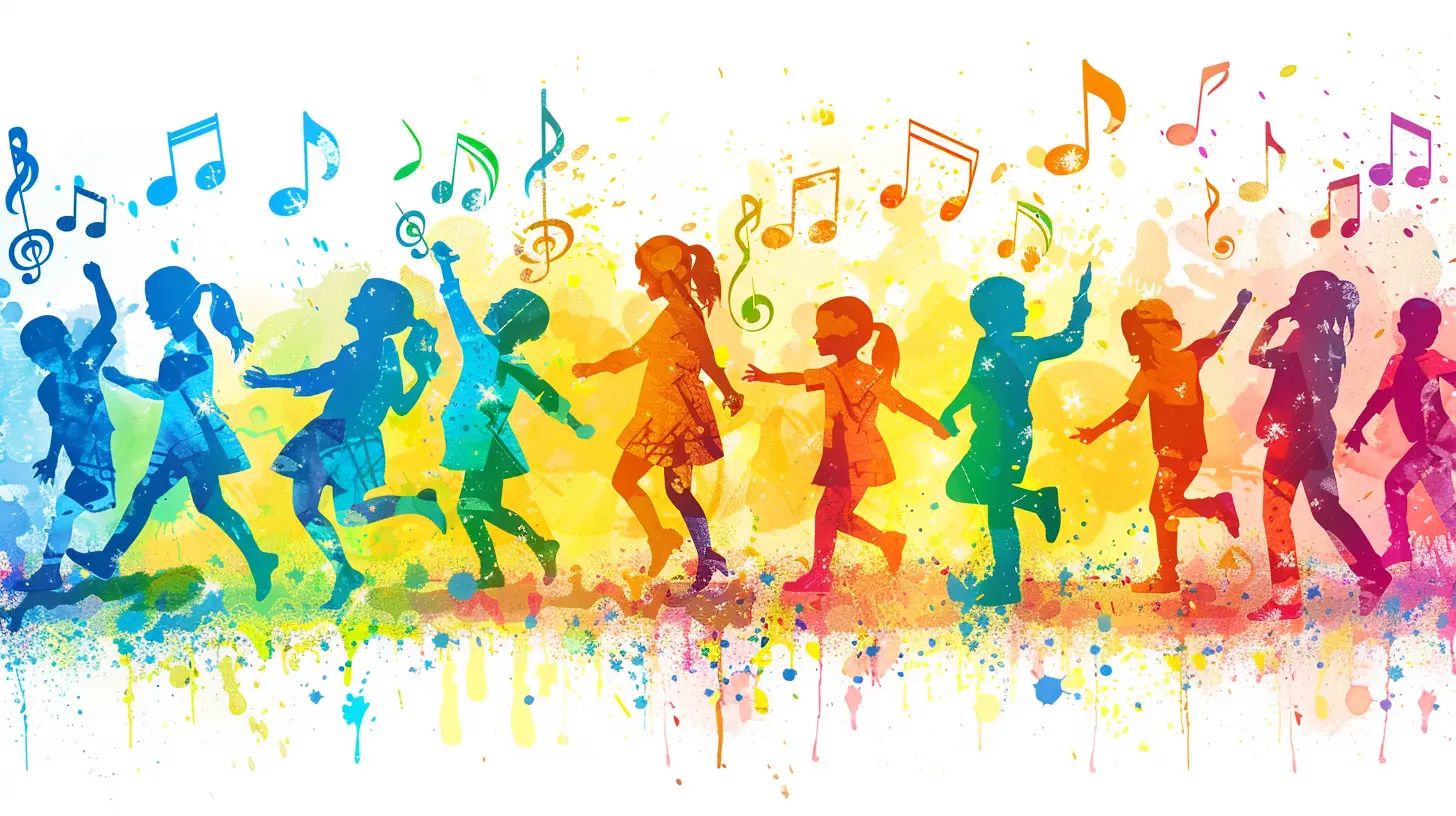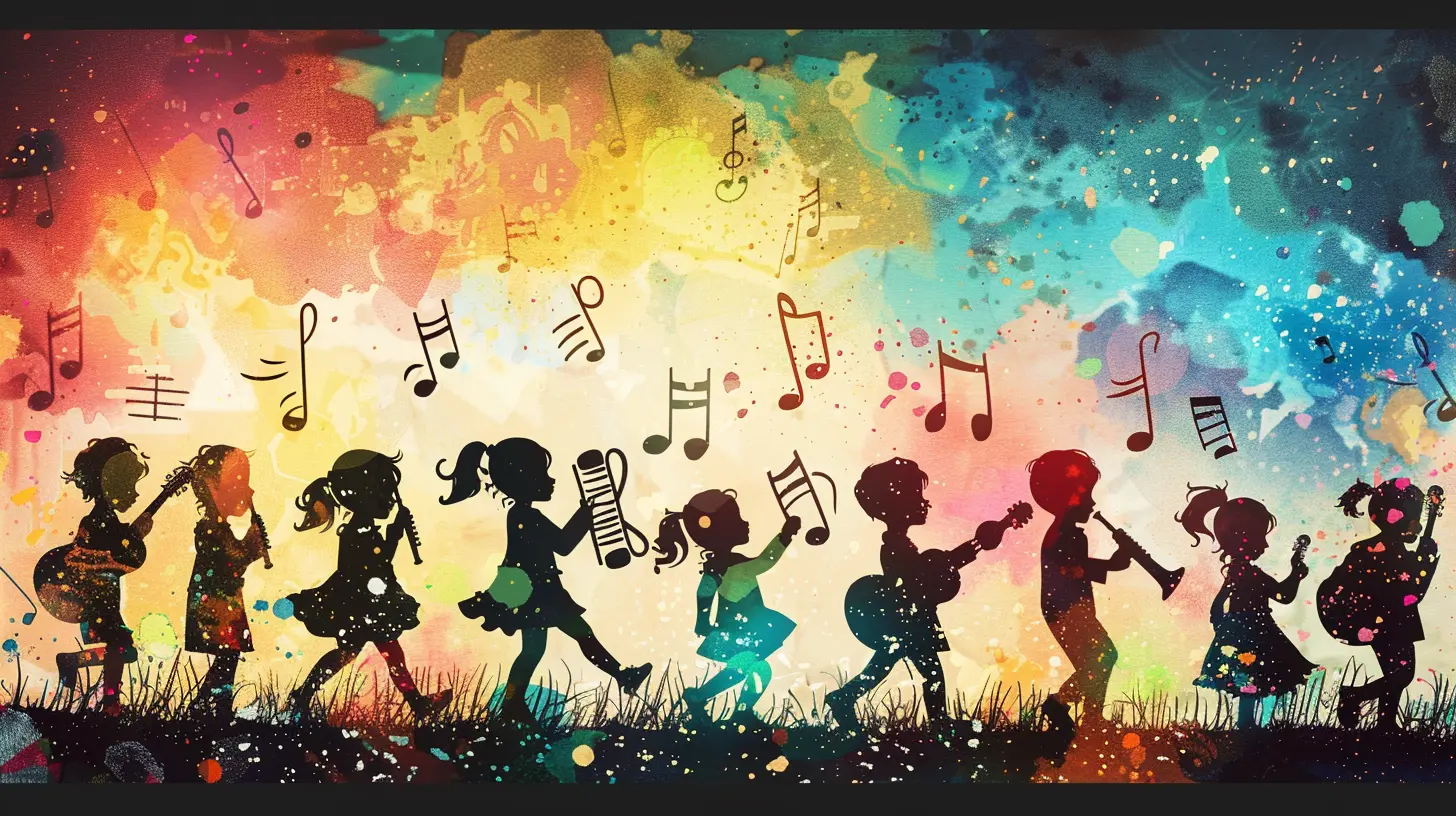31 October 2025
Music isn't just about melodies and instruments—it's a gateway to creativity, discipline, and emotional intelligence. When homeschooling your child, it’s easy to focus on math, science, and reading while unintentionally putting subjects like music on the back burner. But here's the thing: music education is just as valuable. Maybe even more, depending on your child.
If you're a homeschooling parent wondering how the heck you're supposed to squeeze music into your already jam-packed schedule (especially if you've never touched a piano in your life), don’t worry. You don’t need to be Beethoven or Beyoncé to help your child thrive musically. You just need the right tools, the right mindset, and a little bit of rhythm.

Why Music Education Matters (Even at Home)
Think music is just for fun? Think again.Music education supports cognitive development, boosts memory, sharpens focus, and improves reading and math skills. And that’s just scratching the surface. Music also fosters creativity, helps children express emotions, and teaches patience and persistence.
Plus, music can serve as a major de-stressor—for both you and your child. Picture this: instead of a tense math test, your kid heads to the piano, strums a few chords, and chills out. Sounds nice, right?
Brain Benefits of Music Education
Let’s get a little nerdy for a sec. According to various studies, learning music activates multiple areas of the brain at once—especially those responsible for language, memory, and motor control. That means when your child plays an instrument or sings, it's like giving their brain a full workout.Some researchers even claim that music trains the brain for higher forms of thinking. That’s a win in any homeschooling book.
Emotional Intelligence in Harmony
Beyond the academics, music nurtures emotional intelligence. Kids learn to feel through music. They process joy, sadness, frustration, peace—and everything in between. Especially in a homeschooling environment, where social-emotional growth can sometimes get overlooked, music brings in that much-needed spark of humanity.
Getting Started: No Musical Background Required
Here’s the plot twist: you don’t need to be musically trained to teach music. Wild, right?Music education for homeschoolers doesn’t have to look like a structured school music class. It can be spontaneous, messy, fun, and woven into daily life. Whether it’s singing songs during clean-up time or turning pots and pans into a drum set, it counts.
Start Simple With Listening
Before instruments or sheet music, start with listening. Play different genres during breakfast. Introduce classical pieces, then shift gears to jazz, folk, or world music. Talk about what you hear—how does it make you feel? What instruments are playing? Who’s singing?Make it a habit. Music isn’t just something to study, it’s something to live with.
Use What You Have
Got a keyboard collecting dust? Pull it out. Got a smartphone or tablet? Use music apps like GarageBand or Simply Piano. These tools are gold for introducing music-making without the need for formal lessons right away.Even if all you do is sing together or make rhythms with your hands—congrats, you’re teaching music.

Choosing the Right Path: Structured vs. Freeform
The beauty of homeschooling is flexibility. You can tailor your music education approach to your child’s age, interest, and learning style. So where do you start?Structured Programs
If your child is showing serious musical interest, or if you just prefer having a roadmap, structured programs might be the way to go.There are tons of curriculum options created specifically for homeschoolers. Some include:
- Musikgarten – Great for little ones; focuses on movement and rhythm
- Harmony Fine Arts – Integrates music appreciation with history and art
- Zebra Keys – An online piano learning site with free lessons
- Prodigies Music – Color-coded music curriculum for beginners
These programs usually come with lesson plans, videos, worksheets, and guides—so even if music isn’t your thing, you won’t be flying blind.
Freeform Learning
Not every kid thrives with structure. Some live for exploring music on their own terms, and that’s totally okay.Encourage them to create playlists, write songs, or jam out on whatever instrument they’ve got. Let them experiment and discover their musical voice. You might be surprised by where it leads.
Got a little one who keeps turning everything into a drum? Get some bongos. Older kid fascinated by movie scores? Let them analyze the music from their favorite films.

Picking an Instrument: What’s Right for Your Child?
This part can get tricky—but also really exciting.Each instrument speaks to a different personality. Some kids gravitate toward the piano's structure; others toward the guitar’s freedom. And some love belting out tunes more than anything else.
Here are a few things to consider:
- Age/Size: A tuba might not be ideal for your 6-year-old.
- Budget: Instruments can be pricey. Consider rentals or second-hand.
- Space and Noise Levels: Got neighbors? Maybe a digital piano is better than drums.
- Learning Curve: Piano and ukulele are great for beginners.
At the end of the day, the best instrument is the one your child wants to play. Passion will always beat practicality.
Lessons or DIY?
Here’s a common question: Should you hire a music teacher?Private Lessons
Private lessons are fantastic for progress and accountability. You don’t need to leave your house either—many teachers now offer lessons online via Zoom or Skype. Pro? They’ll offer personalized guidance. Con? They can get expensive.Group Classes
Check your local homeschooling co-ops, community centers, or even churches. Many offer affordable group music classes or ensembles, which are also great for socialization.Teach What You Can
Even if you can only manage the basics, it’s still valuable. Don’t underestimate the power of singing lullabies, clapping rhythms, or dancing in the kitchen. These moments build musical foundations that will stick.Technology Can Be Your Best Friend
There's no doubt about it—technology has completely changed the music education game.From YouTube tutorials to mobile apps, there’s an ocean of resources out there. You just have to know where to look.
Top Music Tools for Homeschoolers
- YouTube Channels: Hoffman Academy, MusicTheoryForGuitar, or Drumeo- Apps: Yousician, Simply Piano, Tenuto, Musictheory.net
- Online Courses: Outschool has tons of live, interactive classes
- Games: Rhythm Cat, Ear Cat (they make learning theory actually fun)
Incorporate these into your weekly routine and let your child take the lead.
Making Music a Daily Habit
You don’t need one-hour blocks of structured classes. Instead, drip music into your child’s day naturally.Here are a few easy ways:
- Morning playlist while making breakfast
- Singing during routines like brushing teeth or cleaning up
- Background classical music during reading time
- Music-themed art projects or journaling about songs they love
- “Family Jam Night” once a week—yes, even if you're off-key
Turns out, life is the best music school.
Encouraging Creativity, Not Perfection
One of the biggest mistakes parents make? Expecting their kid to become the next Mozart overnight.The goal of music education for homeschoolers isn't perfection. It's exploration. It's joy. It’s about giving your child a lifelong appreciation for music.
So if your kid hits a wrong note or scribbles silly lyrics—celebrate it. That’s part of the process.
Let them improvise. Let them make noise. Let them create.
Navigating Challenges (Because They’ll Happen)
Let’s be real—homeschooling anything isn’t always smooth sailing, and music is no exception.Here are some common bumps (and how to handle them):
Lack of Motivation
If your child loses interest, don’t force it. Mix things up. Try a new instrument, watch a music documentary, or go to a concert together—yes, that counts as school!Budget Constraints
If money’s tight, start small. There are plenty of free resources online. Rent or borrow instruments. Community theaters or libraries often have hidden gems, too.Noise Complaints
Worried about driving the neighbors crazy? Try digital instruments with headphones or schedule practice times when it’s least disruptive.Final Thoughts: Let Music Shape the Heart, Not Just the Mind
At the end of the day, music education for homeschoolers is less about theory and technique—and more about connection.Connecting with your child. Helping them connect with themselves. Giving them a voice in a world filled with noise.
So don’t stress about “doing it right.” Just sing. Dance. Listen. Play. That’s where the real music magic lives.









Lillian Wood
This article provides invaluable insights for homeschooling parents looking to incorporate music education into their curriculum. With practical tips and resources, it highlights the importance of fostering creativity and musical skills in children, making it a must-read for any homeschooler. Great job!
January 24, 2026 at 9:02 PM